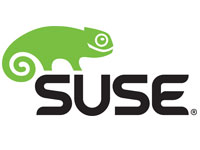SnapRoute, a developer of open source networking software, on Tuesday announced that it has raised US$25 million in Series A financing from an investor group led by Norwest Venture Partners with new support from AT&T and Microsoft Ventures.
SnapRoute, which was founded by CEO Jason Forrester and other former engineers from Apple, plans to use the funding to speed up the development of open source networking software for Fortune 500 firms. The company uses its software on commodity “white-box” switches and routers to create more streamlined and scalable data centers.
Lightspeed Venture Partners is the lead seed investor. Norwest Partner Rama Sekhar will join the SnapRoute board of directors, which already includes Lightspeed Partner John Vrionis, Joe Sexton, the former president of AppDynamics, who joined the board in November, and SnapRoute CEO Forrester.
SnapRoute has managed to challenge legacy players that previously dominated the market, Forrester said, adding that SnapRoute’s software is more agile, flexible and affordable.
Scale Breakthrough
“SnapRoute is disrupting the multibillion dollar networking market by fundamentally changing how networks are built and scaled today,” said Rama Sekhar, partner at Norwest Venture Partners.
“By disaggregating software from hardware, SnapRoute is offering flexibility that has historically eluded the networking industry,” he told LinuxInsider.
The investment is Microsoft’s first in the networking software business, company rep Jay Peters told LinuxInsider.
SnapRoute is “filling a gap in how network engineers work” by providing an open networking stack that is highly scalable, said Nagraj Kashyap, corporate vice president at Microsoft Ventures, which allows companies to lower costs and engineers to work more efficiently.
AT&T and Microsoft have major investments in data centers, and SnapRoute’s software offers the flexibility to use equipment for different vendors while supporting an open architecture, Tirias Resarch Principal Analyst Jim McGregor told LinuxInsider.
The investment comes about three months after SnapRoute and Dell EMC announced plans to deepen their commitment to the Linux Foundation’s OpenSwitch project. The Linux-based OS had been led by Hewlett Packard Enterprises, however that firm later decided to scale back its leadership position on the open source project, which was designed to take on market incumbents like Cisco.
The OpenSwitch Effort
HPE originally launched the OpenSwitch community in October 2015, with a series of partners including Broadcom, VMware, Accton, Intel and Arista.
“The real value in making the source visible is when dealing with testers or partners there can be a more collaborative partnership,” Peter Christy, a research director at 451 Research, told LinuxInsider.
Dell EMC contributed its Dell EMC OS10 Open Edition to the OpenSwitch community. Facebook in October announced that its Wedge 100 network switch specification had been accepted into the Open Compute Project, which was designed to develop open data centers in which the hardware and software were separated.
The company last fall announced its Voyager transponder platform, which uses Open Packet DWDM, to create an open approach for switching, routing and transport.
The platform, which works with SnapRoute on the software architecture and Celestica on the supply chain, is designed to offer a more scalable and cost-effective infrastructure for enterprise level bandwidth, especially for networks that must meed video and virtual reality needs.
Microsoft Ventures last month invested in Illusive Networks, which provides advance deception cybersecurity technology. The company late last year announced an investment in Dynamic Signal, a communications platform that allows companies to interact with employees across multiple type of devices and channels.

























































